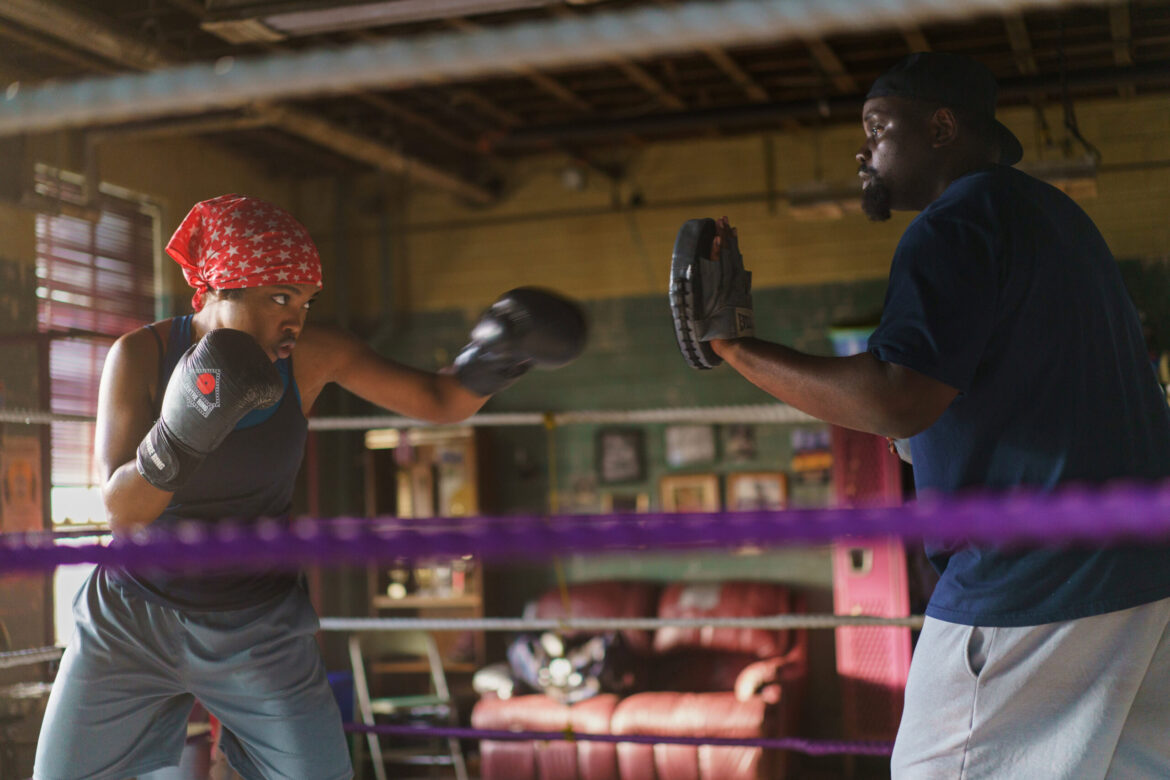By Elise Mackanych
In the gripping true story of Claressa Shields, the best female boxer of all time, director Rachel Morrison takes viewers through a journey of trial, trauma, and triumph in her new film “The Fire Inside.” Through the two-time Olympic gold medal-winning boxer’s tumultuous journey to victory, gender inequality, hardship, and external expectations are barriers to allowing Shields (played by Ryan Destiny, “Star”) to be her most authentic, unapologetic self. While always a boxer, Shields is fighting more than just her opponent—she is fighting the misogyny that is deeply ingrained in the sports world.
Opening in theaters this week, “The Fire Inside” shows the deeply woven misogyny that is prevalent in the world of women’s sports. Earning less in prize winnings than men, being offered fewer endorsements, and having higher expectations are outcomes of a sports system that favors men’s performances over women’s. With Shields’ relentless pursuit of equality, she fights for not only herself but for all women—both in the world of sports and beyond.

Written by Oscar-winning screenwriter Barry Jenkins (“Moonlight”), the film’s beginning explores Shields’ childhood in Flint, Michigan. With a neglectful mother and siblings needing support, Shields has to grow up quickly and bear the weight of the responsibility of caring for her family. Deep down, the teen aspires for something more. She searches for more in a boxing gym, though she is surrounded by coaches and other athletes who doubt her ability to win in the ring because she’s a girl.
Later, as a 16-year-old junior in high school and with years of training and dedication under her belt, Shields begins to win competitions and gains recognition for her athleticism in boxing. With the support of her coach, Jason Crutchfield (played by Oscar-nominated actor Brian Tyree Henry, “Transformers One”), the pair travel around the world to compete. However, the euphoria Shields experiences from the victories quickly comes to a halt as she realizes that not all victors are treated fairly—especially women.
Feeling like everything is seemingly against her, Shields yearns for a prominent victory in the ring. Her excitement is not only for the title but also for the sponsorship opportunities. Money from potential sponsors could help her purchase a home for her younger siblings.
Shields goes on to achieve a major career milestone at the 2012 Summer Olympics, winning the gold medal in boxing; however, support from sponsors is swiftly denied. Shields discerns that it is because she’s a woman in a predominantly male sport, and she isn’t willing to be the “girly girl” that the media seeks to highlight. When the press asks why she boxes, Shields, unwilling to compromise who she is, responds frankly, stating that she “likes to beat people up.
Bringing home an Olympic gold medal, Shields gains immense recognition in her community within Flint. However, this support does not come without a price, as she faces familial challenges. Shields’ need to stand up and do what’s best for herself overpowers the growing demands of those who opted to take advantage of her newfound status.
As Shields, Destiny is captivating in an extremely empowering onscreen performance. In the ring, her intensity as Shields is palpable. In one such moment, when Shields is sitting in the corner of the ring with sweat dripping down her face, audiences see the exhaustion overpowering the boxer’s body, yet her eyes are focused on winning. During boxing sequences, it feels like you’re watching Shields fight in real time. No doubt, audiences will root for her from their seats.
Destiny’s portrayal of Shields showcases a certain tenacity onscreen as her character fights for fair treatment. When the boxer is offered the opportunity to join the Olympic training center, she refuses unless her pay is equal to that of the male athletes. And she didn’t stop there; she pushed the powers that be—successfully—to increase the pay for all women athletes at the center.
Henry, as Coach Jason Crutchfield, represents the power of companionship and support—even when it’s not easy to take in. In the ring, Crutchfield pushes Shields hard and won’t allow her to give up. Outside of the ring, he takes her in as family. Henry takes a soft-spoken yet firm approach to his performance as his character is transparent with Shields about the uphill battles she’s repeatedly finding herself running up against. Through his character’s tough-love demeanor and father-like presence, Henry delivers an inspired performance, especially as Crutchfield encourages Shields to be herself and to ask for what she deserves. By the end of the film, it feels like Crutchfield deserves a big hug for the journey he’s been on with his Olympic athlete.
“The Fire Inside” embodies a movement that cannot solely be put into words. By showing the frustrating experiences of Shields’ journey to the top, Morrison’s film represents the power of being true to who you are and fighting for what you know you deserve.
“The Fire Inside” is now playing in theaters.
